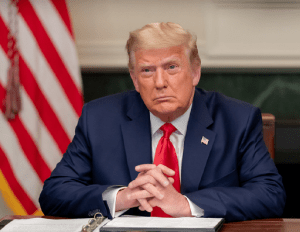
It took just a few weeks. Donald Trump, in his chaotic, blustering, bull-in-a-china-shop style, has managed to accomplish something that decades of diplomacy, trade agreements, and political manoeuvring failed to do. He has short of united Europe, revived a political corpse in Canada, and all but smothered Brexit sentiment in Britain. And the man has barely warmed his seat in the Oval Office for his second term.
Let’s be honest, we knew a second Trump presidency was going to be a mess. The signs were there, rants on Truth Social, MAGA rallies filled with threats rather than policies, and a campaign strategy based more on revenge than governance. But what we didn’t expect was just how fast the world would react to the absurdity of it all. Trump isn’t just making America ‘great again’; he’s inadvertently making everyone else stronger in their defiance of him.
For years, European leaders played a delicate balancing act with Trump. They smiled, nodded, and endured his unpredictable tantrums, hoping to keep transatlantic relations from disintegrating entirely. But this time, something changed. Maybe it was the outright threats to NATO, or his dismissive sneer at the European Union, but something snapped. Within weeks of his second inauguration, European leaders, yes, even the ever-cautious Germans, moved with a unity not seen since the Treaty of Rome. Defence budgets were increased overnight, security strategies realigned, and talks of a fully independent European defence force took on a new urgency. Even the French and Germans stopped bickering long enough to agree that relying on the United States under Trump was like entrusting your life savings to a compulsive gambler in Las Vegas.
What’s more, European citizens, traditionally apathetic to grand political statements, started to feel a strange emotion: defiance. Anti-Trump protests erupted in Berlin, Madrid, and Rome. Even London, still suffering from its post-Brexit identity crisis, saw massive demonstrations—not just against Trump, but against the very isolationist fever that led to Brexit in the first place.
And then there’s Canada, ever the polite observer of American political madness. But this time, something extraordinary happened: the Canadian Labour Party, which had been so lifeless for so long that many assumed it had been absorbed into a maple syrup processing plant, suddenly sprang back to life. Trump’s dismissive attitude towards trade agreements, his open disdain for Justin Trudeau (who he seems to treat as a rebellious schoolboy rather than a world leader), and his renewed threats of tariffs jolted Canadian progressives awake. Labour unions, activists, and even centrists realized that a more aggressive, collective push was needed to protect Canada’s interests from a second Trump rampage. And so, a political movement long thought buried was resurrected, not by some grand internal awakening, but by the sheer, overwhelming necessity of survival in a world where Trump wields power again.
But perhaps the most astonishing effect of Trump’s return is what’s happening in Britain. For years, Brexit was treated as a symbol of defiant independence, a stand against European bureaucracy. But suddenly, with Trump back in power and blatantly treating the UK as an afterthought (or worse, a subservient pawn in his “America First” chess game), the romantic vision of Brexit is losing its appeal.
Suddenly, those who championed “Global Britain” are confronted with an uncomfortable truth: there is no “special relationship” with the United States under Trump. There is only his transactional mindset, where Britain ranks somewhere between a slightly useful lapdog and an inconvenient ex. And so, murmurs of regret have started creeping into the political discourse. The same newspapers that once shouted about the glory of Brexit are now cautiously suggesting that, well, maybe closer ties with Europe wouldn’t be the worst idea after all.
Ironically, none of this was Trump’s intent. He thrives on division, on chaos, on keeping allies off balance while he plays the role of a political wrecking ball. But in doing so, he has managed to force countries, parties, and movements to do something they’ve struggled with for years: unite against a common threat.
Europe is stronger. Canada is more politically energized. Britain is having second thoughts about its self-imposed isolation. And all of this, incredibly, is thanks to Trump.
So, should we be thanking him? Hardly. But we can certainly appreciate the poetic justice in it all. Sometimes, it takes a destructive force to remind the world what truly matters. And as Trump barrels forward, oblivious to the unintended consequences of his own actions, the rest of the world seems to be waking up—faster, stronger, and more determined than ever.

No comments:
Post a Comment